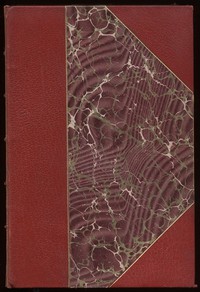Guy Mannering; or, The Astrologer — Complete by Walter Scott (good books to read in english .TXT) 📗

- Author: Walter Scott
Book online «Guy Mannering; or, The Astrologer — Complete by Walter Scott (good books to read in english .TXT) 📗». Author Walter Scott
NOTE 4, p. 180
We must again have recourse to the contribution to Blackwood’s Magazine, April 1817:--
‘To the admirers of good eating, gipsy cookery seems to have little to recommend it. I can assure you, however, that the cook of a nobleman of high distinction, a person who never reads even a novel without an eye to the enlargement of the culinary science, has added to the “Almanach des Gourmands” a certain Potage a la Meg Merrilies de Derndeugh, consisting of game and poultry of all kinds, stewed with vegetables into a soup, which rivals in savour and richness the gallant messes of Camacho’s wedding; and which the Baron of Bradwardine would certainly have reckoned among the epulae lautiores.’
The artist alluded to in this passage is Mons. Florence, cook to Henry and Charles, late Dukes of Buccleuch, and of high distinction in his profession.
NOTE 5, p. 212
The Burnet whose taste for the evening meal of the ancients is quoted by Mr. Pleydellwas the celebrated metaphysician and excellent man, Lord Monboddo, whose coenae will not be soon forgotten by those who have shared his classic hospitality. As a Scottish judge he took the designation of his family estate. His philosophy, as is well known, was of a fanciful and somewhat fantastic character; but his learning was deep, and he was possessed of a singular power of eloquence, which reminded the hearer of the os rotundum of the Grove or Academe. Enthusiastically partial to classical habits, his entertainments were always given in the evening, when there was a circulation of excellent Bourdeaux, in flasks garlanded with roses, which were also strewed on the table after the manner of Horace. The best society, whether in respect of rank or literary distinction, was always to be found in St. John’s Street, Canongate. The conversation of the excellent old man, his high, gentleman-like, chivalrous spirit, the learning and wit with which he defended his fanciful paradoxes, the kind and liberal spirit of his hospitality, must render these noctes coenaeque dear to all who, like the author (though then young), had the honour of sitting at his board.
NOTE 6, p. 215
It is probably true, as observed by Counsellor Pleydell, that a lawyer’s anxiety about his case, supposing him to have been some time in practice, will seldom disturb his rest or digestion. Clients will, however, sometimes fondly entertain a different opinion. I was told by an excellent judge, now no more, of a country gentleman who, addressing his leading counsel, my informer, then an advocate in great practice, on the morning of the day on which the case was to be pleaded, said, with singular bonhomie, ‘Weel, my Lord (the counsel was Lord Advocate), the awful day is come at last. I have nae been able to sleep a wink for thinking of it; nor, I daresay, your Lordship either.’
NOTE 7, p. 235
Whistling, among the tenantry of a large estate, is when an individual gives such information to the proprietor or his managers as to occasion the rent of his neighbour’s farms being raised, which, for obvious reasons, is held a very unpopular practice.
NOTE 8, p. 286
This hard word is placed in the mouth of one of the aged tenants. In the old feudal tenures the herezeld constituted the best horse or other animal on the vassals’ lands, become the right of the superior. The only remnant of this custom is what is called the sasine, or a fee of certain estimated value, paid to the sheriff of the county, who gives possession to the vassals of the crown.
NOTE 9, p. 301
This mode of securing prisoners was universally practised in Scotland after condemnation. When a man received sentence of death he was put upon THE GAD, as it was called, that is, secured to the bar of iron in the manner mentioned in the text. The practice subsisted in Edinburgh till the old jail was taken down some years since, and perhaps may be still in use.





Comments (0)